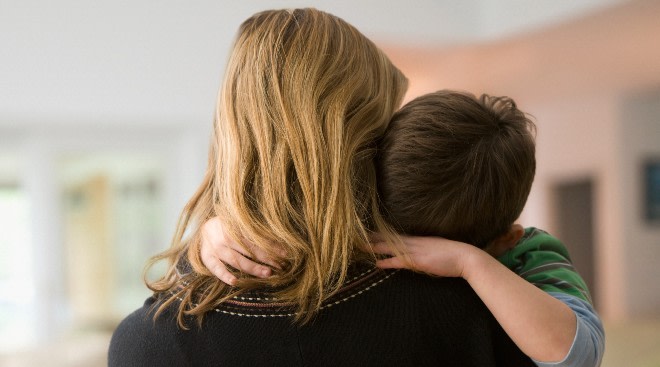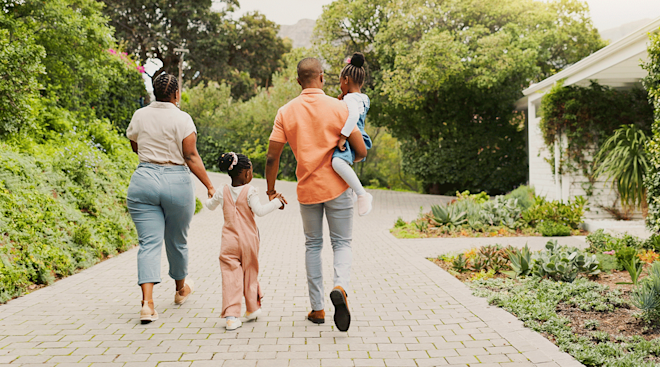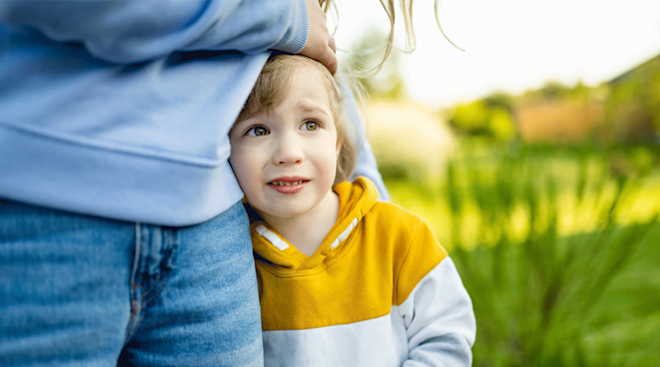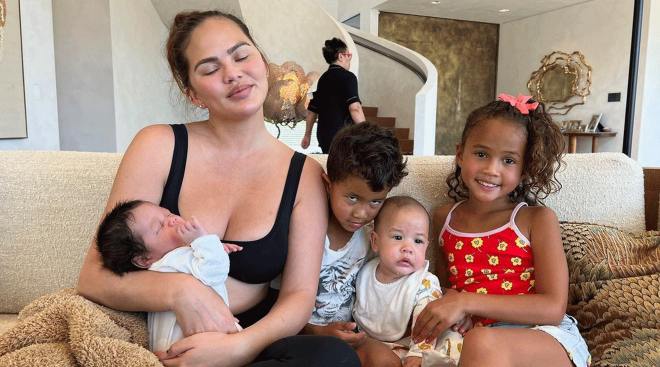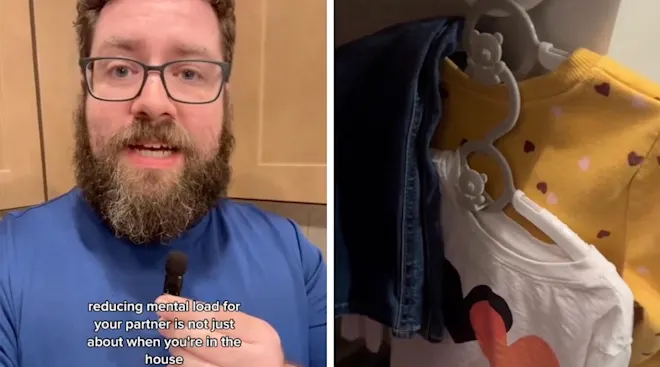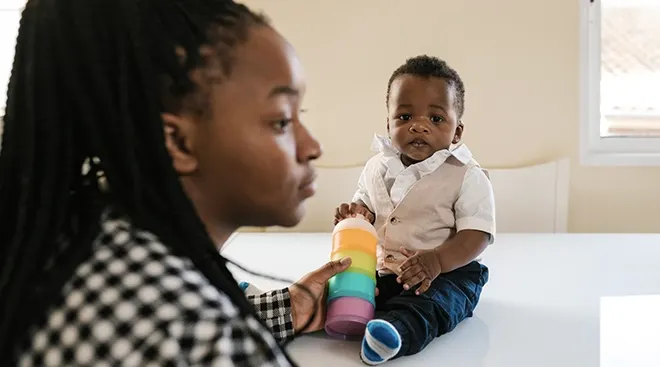How to Cope With the Emotional Aftermath of Another School Shooting
We’re reeling from the gut-wrenching news of children and teachers killed in yet another school shooting, this time at the Convenant School in Nashville, Tennessee, which serves kids in preschool through sixth grade. It’s sickening and heartbreaking and beyond frustrating. How is this reality? As parents (and humans), we ache for the families of those innocent lives robbed by a person with a gun. We grind our teeth and clench our fists in fury at this cycle of senselessness. We clutch our children to us with an inescapable sense of fear. And while it’s totally acceptable to share our intense anger and immense sadness and donate and advocate and shout it from the rooftops, we must also be sure to process our feelings and prioritize our mental health, so we can be physically and emotionally present for the tiny people who rely on us. It’s a tall order—especially if all you want to do is pull the covers over your head. Which is why we reached out to experts for their tips on coping with the emotional aftermath of a national tragedy, plus some advice for helping young kids cope in a developmentally appropriate way.
You can’t pour from an empty cup. And right now, your cup is most likely bone dry. But before you can even attempt to grieve and feel and heal, you need to take a second to just be. “Even a brief moment to pause and intentionally connect with your breath can improve your ability to regulate uncomfortable emotions and stay present in your role as a caregiver,” says Andrea Dorn, MSW, a clinical social worker in South Carolina. Easier said than done? Try square breathing: Inhale for four counts, hold for four counts, exhale for four counts, hold for four counts and repeat. “Check in with your emotional state and repeat as needed,” advises Dorn.
You may feel especially stressed or anxious right now, says Elanna Yalow, PhD, an educational psychologist and chief academic officer of KinderCare. She recommends doing some inner reflection. “When you can feel your emotions getting the best of you, try to pause and consider what the underlying cause is. Are you truly frustrated by your child’s inability to find their shoes or are you upset about something else?” Give yourself the mental space to have this response, but try not to be overwhelmed by the tidal wave of emotions that may come. Dorn suggests a visualization to help you rein it all in. “Imagine your emotions as waves,” she says. “Allow yourself to breathe deeply through them, and let them wash over you and subside.”
If you feel paralyzed with fear, know that you’re not alone. “We make many assumptions every day that allow us to live our lives without being overwhelmed about the many risks we and those we love face, especially our children. When a tragedy like this occurs, we are reminded that our sense of safety is actually based on a series of such assumptions,” says David J. Schonfeld, MD, director of the National Center for School Crisis and Bereavement at Children’s Hospital Los Angeles. “It exposes fears and concerns we all carry—even without our awareness—about the safety and well-being of those we love, especially children who are vulnerable and dependent on us for their safety.”
The news and social media can be unrelenting. Give yourself permission to stop scrolling for a little while. It’s okay to take a break and separate yourself from the latest updates and alerts. Go for a walk. Do some light stretching. Take a bubble bath. Indulge in a good meal. It’s not selfish, it’s self-sustaining. Use distraction as needed. “Though it’s extremely important to process and experience your grief feelings, sometimes waves of grief are a bit too overwhelming—or it’s not the right time,” says Dorn. “In these cases, it can be helpful to [oscillate] from experiencing your emotions to giving your mind and body some rest.”
You might have the urge to internalize everything right now. But ultimately, that’ll leave you feeling further isolated. Lean on your support system. “Connect with other parents, your spiritual community, volunteer, reach out to a therapist or find other ways that feel best to you to create points of connection with others,” suggests Dorn.
Your instinct may be to put on a happy face in front of others—especially your kids. It’s natural to want to hide your actual feelings in such an awful and raw situation. While toddlers don’t need to learn the details, it’s okay to let them know that you’re sad or experiencing big feelings. “Use this as an opportunity to share what you do to manage your own distress,” suggests Schonfeld. What’s more, be the role model your kids need. “Parents need to model effective coping strategies, and can only do this when they share that they have difficult feelings and how they cope effectively with them,” says Schonfeld.
You need an outlet for that pent up rage and sadness. “Physical movement of any form can assist in letting go of built up emotional energy and in releasing powerful feel-good chemicals,” says Dorn. No, going for a run or hitting a punching bag isn’t going to solve the greater problem, but it’ll help put you in the right frame of mind to better handle what’s in front of you.
“Tragedy is unpredictable and can leave us feeling out of control and overwhelmed,” says Dorn. “Each time your mind wanders to upsetting or overwhelming thoughts, it can be helpful to return your focus to what you can control in your moment,” she suggests. This can be as simple as diving into your work, practicing self-care or getting laundry done. Try to knock off one task at a time, and allow yourself to feel a sense of control and accomplishment.
You know your children best, and you have to evaluate how much they should know about a given situation. A lot of this depends on age and maturity. But remember that kids are smarter and more intuitive than we sometimes give them credit for. They may have seen photos in the newspaper, heard snippets on television, been exposed to peripheral conversations or just sensed that you’ve been feeling down, and are upset or confused as a result. “We want children to know that we’re there to help them with the things that bother them,” says Schonfeld. “Helping them understand and process their feelings…can lay the foundation for future conversations.”
It’s understandable to be struggling right now. But if you’re having trouble functioning—or your emotions are interfering with your ability to care for yourself and your children—you may need to seek out professional help from a therapist. In the wake of such a tragedy, it’s okay to not be okay.
About the experts:
Andrea Dorn, MSW, is a clinical social worker in South Carolina and the author of the Mindful Steps Series, a series of children’s how-to guides designed to empower kids with the foundational understanding of important developmental skills and concepts for key milestones in early childhood. She is the co-founder of Statera Counseling Center, a private practice located in the greater Columbia area of South Carolina.
David J. Schonfeld, MD, is a developmental-behavioral pediatrician and the director of the National Center for School Crisis and Bereavement at Children’s Hospital Los Angeles. He received his medical degree from Boston University.
Elanna Yalow, PhD, MBA, is an educational psychologist and chief academic officer of KinderCare, a national daycare and preschool chain.
Plus, more from The Bump:
Navigate forward to interact with the calendar and select a date. Press the question mark key to get the keyboard shortcuts for changing dates.
































